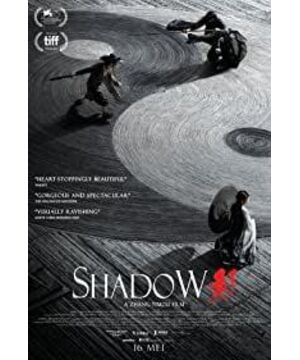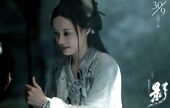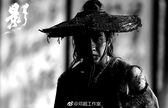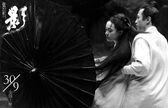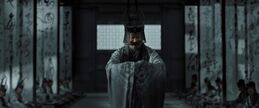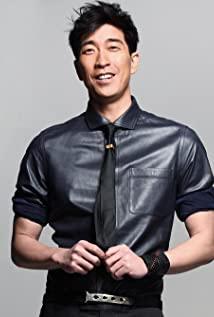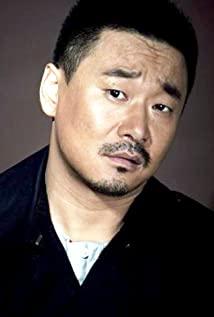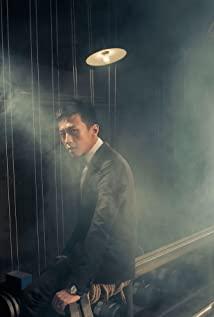No matter how questioned Zhang Yimou's commercial films are, as long as he makes a move, it will definitely cause a small earthquake in the domestic film industry.
In fact, long before Zhang Yimou filmed "The Great Wall", the preparatory plan for "Shadow" had already started, so when "The Great Wall" was released in March, before the popularity of "The Great Wall" had not passed, Zhang Yimou had secretly started "Shadow".
If there is a formula for predicting the quality of domestic films today, then the materials currently released by "Shadow" can at least let people see the quality of the film.
"Shadow" starred Deng Chao and Sun Li. The couple's acting skills were excellent. In addition, Wang Qianyuan, Hu Jun, Zheng Kai, and Wang Jingchun also had solid acting skills.
Of course, the film naturally needs to bring some traffic stars, but it doesn't matter. Overall, the cast can be reassuring first.
The original story of "Shadow" comes from Zhu Sujin , who once served as the screenwriter of Gao Xixi's "Three Kingdoms", so the background of "Shadow" itself has also been stabilized, and the screenwriters of the film are Li Yue and Zhang Yimou.
The movie posters of "Shadow" are, needless to say, the top match. They found the hot Yellow Sea and designed several posters with wild ink tension and boundless Tai Chi.
The most interesting thing about "Shadow" at present is the light and shadow presented in the film. Zhang Yimou abandoned the previous rich color style and chose the advanced ink style black and white gray instead.
This kind of ink texture picture is not a single post-processing of color fading, but from the scenes, costumes, props, all the tones of black, white and gray have been studied in advance, and a brand new visual experience has been pursued.
Many people say that the aesthetic design of black, white and gray is Zhang Yimou's tribute to Akira Kurosawa's works in the black and white period. This sentence needs to be verified, but Master Kurosawa is indeed unique in the performance of black and white gray aesthetics.
Take the most well-known "Rashomon" as an example, the black and white layers of light and shadow open up the depth of the space, and many rain scenes are interspersed in the gray tone.
The gray treatment in "Shadow", judging from the trailer, is placed on the character's clothing and in the rain.
The tone of the gray scale has always been the most difficult part to deal with. If you are not careful, it will make people feel like a log mode that has not been post-production.
There are several pictures in the trailer, and Da Cong has this illusion. I hope this is just because the clarity of the trailer is not enough. It is estimated that the gray level will appear when I go to the theater.
As for the handling of this black and white photography, I have to mention Zhang Yimou's best partner photographer Zhao Xiaoding . The two of them have worked together in "Hero", "House of Flying Daggers" (nominated for best cinematography at the Oscars), "Golden Armor in the City" ".
This time they reunited again to experiment with the ink and wash advanced gray of the Three Kingdoms version.
Having said so much about the visual breakthrough of "Shadow", as for what kind of story "Shadow" tells, the secret work of the film party can be described as tight.
But Da Cong, based on the announcement of "The Authorities Are Not Fascinated", and Zhang Yimou's interview some time ago, came to help everyone pull the film, analyze and predict the plot content of "Shadow" (and I'm going to slap my face again).
If the story of "Shadow" comes from Zhu Sujin's "Three Kingdoms. Jingzhou" , then the story of the film will take place in Jingzhou. After the Battle of Chibi, the seven counties of Jingzhou were divided up by Liu Bei, Cao Cao and Sun Quan.
During the Three Kingdoms period, Jingzhou was not the current Jingzhou city, but a general site, covered by rivers and defensive mountains, and its strategic location was evident.
There must be many tragic stories that happened in Jingzhou during the Three Kingdoms period.
The protagonist of "Shadow" Zi Yu (played by Deng Chao), his father was assassinated since he was a child, and his uncle found a substitute for him named Jingzhou (played by Deng Chao). Jingzhou was secretly trained since he was a child. This is the so-called "shadow".
This makes people have to think of Kurosawa Akira's "Shadow Warrior" (1980), which tells the story of Takeda Shingen in the Warring States Period of Japan, who was seriously injured in the war and was on the verge of death. He is called "Shadow Warrior".
Of course, the character setting and plot of Zhang Yimou's "Shadow" are different from those of "Shadow Warrior". In ancient times of war, it was normal for powerful figures to have stand-ins.
Zhang Yimou directly revealed in the interview that Deng Chao was crazy fat and thin during the filming in order to play these two roles well.
When playing Jingzhou, Deng Chao had to eat and eat every day and practice to make himself a strong man, so that he could become an excellent stand-in for Jingzhou and protect Ziyu.
And because Zi Yu kept himself "in a cage" for a long time, he was skinny, so Deng Chao wanted to lose weight in a short period of time.
Zhang Yimou saw on the set that Deng Chao almost fainted several times during the period of losing weight. He needed someone to help him when he walked. He had to ask Deng Chao to hire a health consultant, otherwise there would be a health crisis.
Sun Li also "begged for help" on Weibo: "Everyone quickly persuade him not to lose weight, the weight of 1 kg every two days is falling down...", Deng Chao also interacted with Sun Li below and exploded huge and thin photos .
It can be seen that when Deng Chao was filming, he did his best to be perfect for the role, without joking.
In "Shadow", Sun Li plays Zi Yu's wife, Xiao Ai.
In the interview, Zhang Yimou also boldly revealed:
"Usually the story of the avatar and the deity must be entangled among a woman, and his wife has mixed up the truth and the false. The routine of this story must be that she will fall in love with this avatar."
From a big truth that Zhang Yimou accidentally revealed, it is very likely that Zi Yu's wife had a real relationship with the substitute, which made the deity and the substitute turn against each other.
Judging from the trailer, there is a scene of Deng Chao and Xiao Ai (Sun Li) making out, but at that time Deng Chao was the deity or a substitute. Know.
There is also a scene in the film where Zi Yu is holding a long stick and slams Jingzhou on the back, with Xiao Ai standing next to him, which also shows that the festival between the deity and the substitute is not small.
Ziyu's subordinate is called Tian Zhan (played by Wang Qianyuan), and he calls Ziyu the governor. During the Three Kingdoms period, the governor was the official name of the military chief of the central and local governments.
From the rough point of view of the trailer, the protagonist of Zi Yu's life is Pei Liang (played by Zheng Kai). Pei Liang looks both good and evil in the trailer, and his temperament is unpredictable, but he has a good hand.
Judging from the setting in the palace of the protagonist Peiliang, it is full of calligraphy and paintings, and Chinese-style decorations are everywhere.
This makes one can't help but think of the style of Can Jian (played by Tony Leung) in writing calligraphy in "Heroes".
Guan Xiaotong plays Peiliang's younger sister. She flips the table briefly in the film. She seems to have a good temper. I don't know if it is because of love and hatred with Ziyu, or a conflict of opinion with her brother Peiliang.
The trailer uses a lot of split screens to express the opposition and fusion of "binary" Tai Chi, and it is also used to express the perspectives of different characters in the same state of mind and the same scene.
The use of split screen in film history is not surprising. The most classic is "Lola Run" . In order to express the urgency of time and the sense of overlap, split screen is used many times.
I don't know whether the split screen of "Shadow" is specially created for the trailer, or it is shown truthfully in the feature film.
In addition, there is a very short picture in the trailer, which is the plot of Jingzhou (Zi Yu) breaking his hair. During the Three Kingdoms period, breaking his hair was a great shame, and breaking his hair was like breaking his life.
In the official history of the Three Kingdoms, Cao Cao broke his own hair because he set a rule that he violated.
The haircut of Jingzhou (Zi Yu) in the film may be a complete break between the deity and the substitute, or it may be a plot in which the substitute takes the place of the deity to punish.
As for Hu Jun and Wu Lei, who play Yang Cang's father and son, there are no pictures in the trailer, but some close-ups of fights in the rain, combined with their stills, it is estimated that these pictures are exactly the scenes of their fights.
Having said so much about "Shadow", now let's talk about Da Cong's concerns.
Since "Hero", Zhang Yimou has opened the door to domestic commercial blockbusters, which has reinvigorated the domestic cinema market, which has been in the doldrums for more than ten years. It is not too much to say that after "Hero", the domestic film market has begun to flourish.
Although "Hero" is still controversial, Da Cong sees more of the positive energy that "Hero" brings to the domestic film market.
Therefore, Zhang Yimou's guiding path has changed drastically since then, and he has taken the road of big commercial films. In these Zhang Yimou-style blockbusters, many audio-visual languages have been innovated, and Chinese style has attracted worldwide attention.
But at the same time, there are also many people who are questioning that the form of these films is greater than the content, so this time "Shadow" has also caused concern to many people. At present, there are more trailers and stills, and it is still a fuss about the visual aspect.
Just like the golden armor in "The Golden Armor of the City", the colorful battle uniforms of "The Great Wall", and then to the black and white gray of "Shadow".
However, Zhang Yimou also repeatedly emphasized in the interview that the story is more important than the color. Although on the surface the story is the love-hate relationship between the deity stand-in and Xiao Ai, the depth of the story is the torture of human nature in the end.
Well, who wouldn't say anything about propaganda with big rhetoric and truth? The key is how the film can express these so-called human nature, depth, truth, and good stories. This is the biggest difficulty in making a good film.
But in any case, Zhang Yimou's "Shadow", Jiang Wen's "Evil Does Not Overpower the Righteous", and Tsui Hark's "Di Renjie: The Four Heavenly Kings" are the domestic blockbusters that Da Cong is most looking forward to this year.
Good or bad, see you later.
Pay attention to the public account of "Da Cong Watching Movies", do not pursue the running volume, but only grind the fine products.
View more about Shadow reviews


